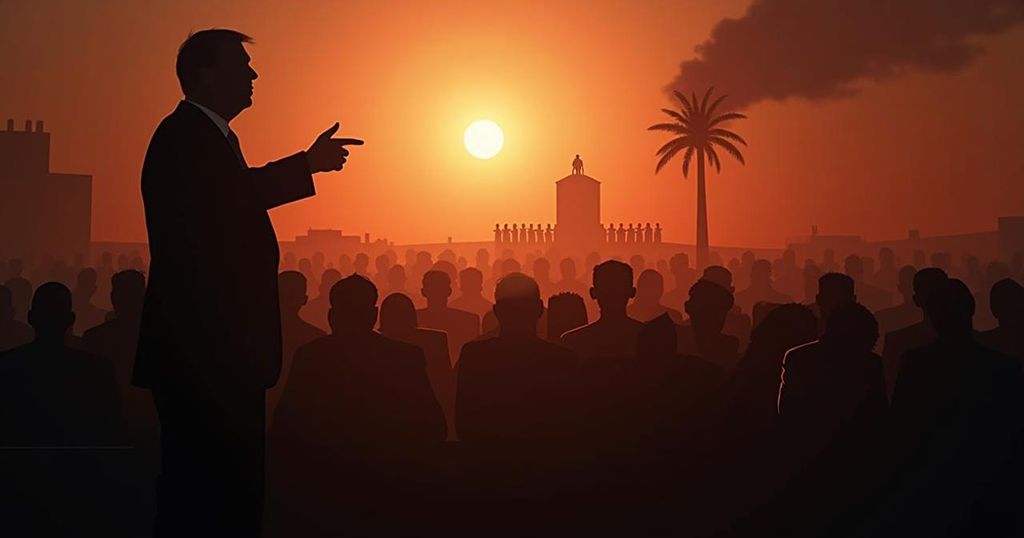Political Repression Marks Tunisia’s Presidential Election

Tunisia’s presidential election featured incumbent Kais Saied, positioned to win amid a repressive environment with no genuine opposition. With critical figures jailed and 14 candidates barred from running, many citizens expressed disconnection from the electoral process, reflecting a grim outlook for democracy and economic stability in the country.
Tunisia conducted a presidential election on a Sunday, marked by significant repression and the absence of genuine opposition to incumbent President Kais Saied. This election is perceived as a final chapter in Tunisia’s experiment with democracy, occurring three years after Saied’s assertion of sweeping powers, which many view as a regression from the democratic aspirations following the Arab Spring. With two main candidates—one a former lawmaker who supported Saied’s 2021 power move and another a businessman recently imprisoned—most critical voices have been silenced, as 14 potential candidates were barred from candidacy amid increasing political repression. Polling locations opened at 8:00 AM (0700 GMT) and were scheduled to close at 6:00 PM (1700 GMT), with preliminary results expected soon thereafter. Notably, leading up to this election, there were no public debates or campaign events, leading to a distinct lack of energy among the electorate, with many expressing a sense of futility regarding the vote. For instance, one young voter, Mohamed, indicated a collective disengagement from the political process, stating that he and his peers saw voting as “useless.” Since assuming power in 2019, President Saied has enacted significant changes to the political landscape, including rewriting the constitution and implementing further crackdowns on dissent in which critically inclined individuals have faced imprisonment—a situation condemned by observers, including Human Rights Watch. Reports suggest that upwards of 170 individuals are currently jailed on political grounds or for the exercise of basic rights. Prominent opposition figures, such as Rached Ghannouchi of the Ennahdha party, have faced arrest in this political climate. Despite an anticipated voter turnout of approximately 9.7 million, public sentiment is marred by economic distress and a realistic acceptance of the election’s outcome favoring Saied. Analysts from the International Crisis Group highlight that the lack of alternatives, paired with widespread disenchantment over the economy under Saied’s leadership, has deflated public enthusiasm for the electoral process. Protestors have taken to the streets, denouncing Saied’s practices as authoritarian, while he calls for a “massive turnout” to fortify his governance amidst allegations of foreign conspiracies disrupting public service projects. In conclusion, the political atmosphere in Tunisia paints a grim picture of an election devoid of meaningful choice, amidst a backdrop of repression and mounting economic challenges.
This article details the presidential election in Tunisia, which has taken place under increasingly repressive conditions where the running candidates lack significant public visibility and appeal. The election is notable as it follows a period of deep political turmoil initiated by President Kais Saied’s consolidation of power in 2021. Tunisia was once celebrated as a beacon of democracy in the Arab world, being the birthplace of the Arab Spring. However, this election might signify a troubling retreat from democratic practices, with restrictions imposed on numerous potential candidates and critics, aligning the political landscape solely with Saied’s vision.
In conclusion, Tunisia’s recent presidential election highlights the drastic regression in its political landscape, characterized by a lack of viable opposition and an atmosphere of fear surrounding dissent. With Kais Saied positioned as the likely victor amid significant public disillusionment, this election not only symbolizes a turning point in Tunisia’s democratic journey but also raises profound concerns regarding the protection of civil liberties and the future of the nation.
Original Source: www.france24.com






